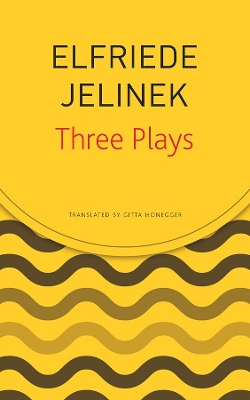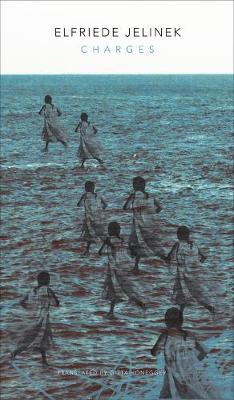The German List - (Seagull Titles CHUP)
3 total works
Although Elfriede Jelinek is an internationally recognised playwright, her plays are difficult to find in English, which makes this new volume all the more valuable. In Rechnitz, a chorus of messengers reports on the circumstances of the massacre of 180 Jews, an actual event that took place near the AustrianHungarian border town of Rechnitz. In The Merchant's Contracts, Jelinek brings us a comedy of economics, where the babble and media spin of spectators leave small investors alienated and bearing the brunt of the economic crisis. And in Charges (The Supplicants), Jelinek responds to the immeasurable suffering among refugees fleeing death, destruction and political suppression, and asks what refugees want, how we as a society view them, and what political, moral and personal obligations they impose on us.
In Charges (The Supplicants), Nobel Prize–winning writer Elfriede Jelinek offers a powerful analysis of the plight of refugees, from ancient times to the present. She responds to the immeasurable suffering among those fleeing death, destruction, and political suppression in their home countries and, drawing on sources as widely separated in time and intent as up-to-the-minute blog postings and Aeschylus’s “The Supplicants,” Jelinek asks what refugees want, how we as a society view them, and what political, moral, and personal obligations they impose on us. Looking at the global refugee crisis of our current moment, she analyzes challenges to the political, social, and psychological realities in safe, comfortable Western countries, exploring what everyday language and media coverage reveal about Western perceptions of refugees. In a world where insecurity seems to spread by the day, Charges (The Supplicants)is a timely, unflinching account of how we treat those who come to us in need.
Nobel Prize winner Elfriede Jelinek is known as a writer who works in response to contemporary crises and cultural phenomena. Perhaps none of her works display that quality as clearly as On the Royal Road. Three weeks after Donald Trump’s election, Jelinek mailed her German editor the first draft of this play, which turns out to be a stunningly prescient response to Trump and what he represents. In this drama, we discover that a “king,” blinded by himself, who has made a fortune with real estate, golf courses, and casinos, suddenly rules the United States, and the rest of the people of the world rub their eyes in disbelief until no one sees anything anymore.
As topical as the evening news, yet with insight built on a lifetime of closely observing politics and culture, On the Royal Road brings into focus the phenomenon of right-wing populism, which spreads like a virus and has a lasting effect on global politics. Carefully perched somewhere between tragedy and grotesque, high-pitched and squeamish, Jelinek in this work questions her own position and forms of resistance.


